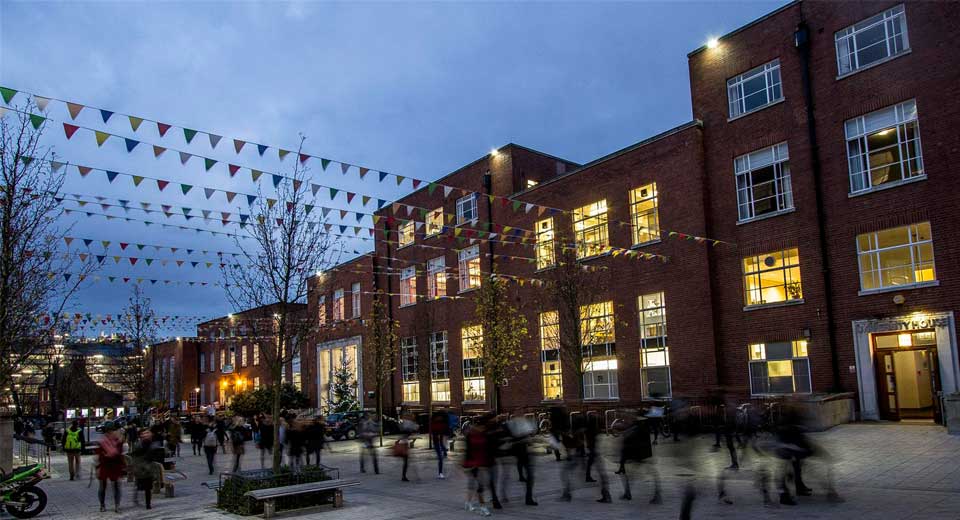Good news first: The University of Leeds remains one of the most highly recommended universities in Britain, ranking 13th overall in the Good University Guide that was released by The Times and Sunday Times this September. The ranking considers factors ranging from teaching and research quality to sports and social facilities, as well as student satisfaction. The devil, however, is in the detail.
Out of a total of 131 universities, Leeds placed 107th for social inclusion and student mix, a mediocre rating at best. According to the statistics in The Times, it seems that the student body at Leeds University is not as diverse as its promotional pictures make it out to be. Among the total student population of over 38,000, only 18.5 % belong to an ethnic minority, while other categories such as students from deprived areas, disabled students and mature students each fail to reach the 10% mark.
These numbers contradict the fact that the university strives to be “a beacon of excellence for Equality and Inclusion in the higher education sector” and they run counter to the strap line of their Equality and Inclusion framework: “Everyone Included, Everyone Involved.” However, these contradictions also suggest that the areas measured and compared by the Good University Guide don’t show the full picture. While the numbers reveal diversity on campus as an area where improvements must be made, they cannot capture the university’s inclusivity as a whole – the ways in the university deals with students from different cultural, linguistic or educational backgrounds, and with different learning needs.
So, the low score in terms of social inclusion doesn’t necessarily mean that Leeds Uni fails to be inclusive. Thankfully, digging deeper into the university’s practices when it comes to inclusive learning and teaching proved to be a lot more encouraging than reading its disheartening results in the Good University Guide.

In 2016, Inclusivity Project Lead Jenny Brady established the Inclusive Learning and Teaching Development (ILTD) project. Recognising the need for collaboration across different groups at the university, her project brought together the teaching staff, the LUU, members of Student Education and central services in an effort to make learning, teaching and assessment as inclusive as possible. This includes paying attention to the special needs of disabled students, ensuring equal opportunity for international students and encouraging participation from underrepresented groups in general.
Three years later, the project has a lot to show for. Most recently, the university has appointed 26 School Academic Leads for Inclusive Practice (SALIPs) among members of staff, who will help their colleagues in making sure that their teaching practices are inclusive. Among other responsibilities, the SALIPs will review the extent to which the recently agreed Baseline Standards of Inclusive Learning and Teaching are already built into everyday practice, and then create action plans for moving towards fully embedding them. Commenting on the appointment of the SALIPs, Jenny Brady said “It’s really exciting to have a network of colleagues who are passionate about improving inclusivity and who can make a real difference out in Schools and Faculties.”
Thanks to those standards, all schools at the university now have to monitor the ways in which their staff’s learning, teaching practices, activities and supporting materials fulfil (or fail to meet) these inclusivity requirements. To make staff familiar with the requirements, ILTD identified best practices with regards to the curriculum, teaching and assessment, and made them available online in 2017. These developments have a direct impact on all students, seeing as the standards were designed to ensure that assignment briefs are clear, materials are distributed in a timely manner, and assessments are marked fairly. Surely, this is something we can all appreciate regardless of our background and abilities.
In addition to staff-led change, there are also opportunities for students to get involved. Showing an awareness of the value in bringing together staff and students on the topic of inclusivity, the university has celebrated National Inclusion Week for the third year in September 2019. The range of workshops and events that were offered as part of the celebrations ranged from getting together on issues like lack of family support, trans awareness and everyday inclusion in teaching, to learning how to pronounce Chinese names – a workshop that was held twice due to great popularity!
Even though the social inclusion ranking in the Good University Guide drives home the message that there is still a lot of work ahead in providing equal opportunities and access to diverse groups, the efforts that have been made so far suggest that the University of Leeds is certainly on the right track by championing inclusivity across campus.

